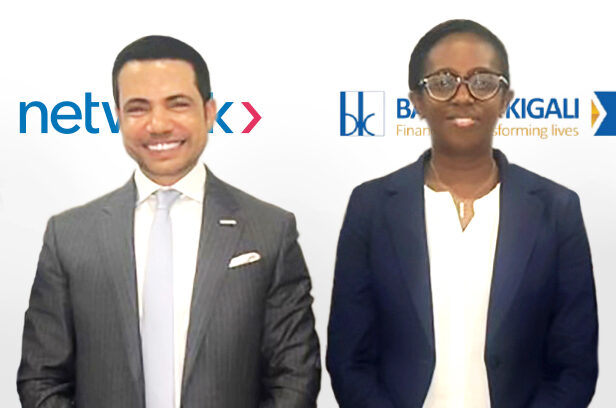Technology
Aziza Coin announces blockchain solution to render African projects economically viable

In 2017, Damian Gawlowski, a South Africa insurance contractor based in the City of London, uncovered the hidden impact of intermediary fees with the more risk an investor took on
DAVOS, Switzerland, January 25, 2019/ — In the Financial Times’ (www.FT.com) report on Innovation in South Africa today, Aziza Coin (www.Aziza.io) simulates how to beat high fees and shows why “excessive profits in UK fund management industry handicap growth on the African continent.”
In 2017, Damian Gawlowski, a South Africa insurance contractor based in the City of London, uncovered the hidden impact of intermediary fees with the more risk an investor took on. Up to 78% of returns from private equity are consumed by intermediary fees. Gawlowski investigated and found that while this was the case, the underlying equity and bond returns were over 4% rather than the 1% he actually received. Undisclosed fees added, he calculated, made intermediaries consume over three-quarters of the underlying returns generated by the bond portfolio that was ultimately invested in. Gawlowski considered putting his pension into higher risk investments such as private equity funds and as the mutual fund returns resulted in real depreciation of his pension by 1.3% per year after fees. He modelled a dummy private equity portfolio where he calculated that the portfolio would need to make 140% over a typical seven-year period simply to cover the fees and to keep up with inflation. This meant that an (annualised) internal rate of return of 13.3% would be required to simply retain his 2017 buying power by achieving UK inflation of 2.7%. *
The Financial Conduct Authority has expressed concern about the level of fund management profits when it was quoted as saying in a report lambasting the statutorily-protected revenues of the United Kingdom’s £6.9 trillion fund management industry’s’ profit margin of 36%. It found that “firms do not typically compete on price with their retail active funds in the UK [and that] there is some evidence of a negative relationship between net returns and charges.” **
These fees, which the FCA regards as excessive, have real societal costs. As Einstein is alleged to have said, compound interest is the most powerful force in the universe. A pension that appreciates by 13.3% per annum (ie gross returns without the 78% intermediary fees will return 140% in seven years time, whereas with the fees added, an annual return of 2.7% will only appreciate by 20%. These fees have already broken the defined benefit company pensions system and has the potential to cause real poverty in the Western world, where their effect is not well understood by the general population. The fact that the UK financial services PR industry is worth £2 billion per year does not help. Furthermore, if the fund management industry is taking three-quarters of returns, with 40% of funds disappearing upfront, it becomes distinctly more risk averse, as any loss of retail investor capital will invite scrutiny and therefore shed light on the level of their fees.
This risk aversion is manifested in the fact that 0.02% of assets under management or only 8 billion Euros were allocated to startups in 2016. This matters since start-ups create more jobs than the rest of the economy combined. Pre-ICO, Damian invested in the Aziza Project, which seeks to use distributed ledger technology to automate and disintermediate the layers of fund management costs. The Project was careful to avoid the usual pitfalls that have beset other cryptocurrencies:
- From the outset, it avoided the argument as to where it was a security or a utility, by registering under Reg D exemption in the United States as a security token.
- Every buyer and seller of coins has been vetted and subject to the level of KYC required to open a high street bank account as well as being checked as being recorded as a taxpayer.
- It became the first cryptocurrency in the world to integrate its reporting systems with a tax authority when it became a third party data provider to South African Revenue Services (SARS), ensuring that investor gains were reported and taxed as capital gains. 4. It is asset-backed by seven oil and gas concessions in Southern Africa. Aziza Coin offers something Damian could not find anywhere else – low transparent fees where investor fees are limited to 10% upfront with no further fees. Its Ethereum-based smart contract automates the annual fund management function with a mere 800 lines of code. So if the underlying exploration projects deliver the same underlying returns as Damian’s fictitious portfolio – 140% in seven years, his returns after fees will increase from 20% using traditional fund management fee structures to 126% — over six times times the returns.
Aziza Coin offers something that excites Damian more than reducing the fees. He has starting working on Acqumine, which has had discussions with the South African Revenue to internalise commodities taxation into a smart contract and eventually a pan-African commodities exchange that will enable host countries and local communities in the developing world to receive royalties due to them, while giving end customers piece of mind as to the true source of the minerals that make up consumer goods they buy.
Learn more about Aziza Coin at: www.Aziza.io
Based on IFA trail commissions of 3% upfront plus 0.5% per year, pension fund fees of 1.o% per year, fund of fund fees of 1% per annum and 10% profits and private equity fees of 2% per annum and 20% of profits on exit. Based on a dummy portfolio of five investments delivering an average of 140% over a seven year period.
Asset Management Market Study – Final Report Market Study – MS15/2.3-June 2017 recommendations 1.9 1.10 and 1.11 page 4 https://bit.ly/2tnjKVw
Note: Aziza Coin is not available for sale.
Distributed by APO Group on behalf of Financial Times Africa Representative.
Technology
LG Showcase MEA 2024 returns, showcasing all major product lineups

LG Showcase MEA 2024 today welcomed guests and partners in Abu Dhabi to in-person experience the latest and greatest the brand has to offer. The two-day event held at Conrad Abu Dhabi Etihad Towers Hotel in Abu Dhabi, UAE had over 500 guests who witnessed all of LG Electronics’ new innovations that will be rolled out in the region. The LG Showcase, returning after a successful event last year, will create a common platform for experiencing LG Electronics’ unique customer-focused innovations and reaffirm the company’s vision to bring innovative products to the market that enhance the customer’s overall experience. The event revolved around the theme of Reinventing Together, which expresses the brand’s commitment and passion toward its customers and their requirements.
Mr. Il Hwan Lee, Chief Executive Officer, LG Middle East & Africa (MEA) Region said: “We saw a huge success when we returned to the LG Showcase MEA event last year and we are elated to see the same success in today’s event as well. It is a great pleasure to showcase our latest innovations and give our guests the chance to experience them all firsthand. We are happy to see the love and appreciation received for each product and look forward to bringing more to this region overall.” He further added, “This event is a platform that showcases not just our products, but also reiterates our commitment to our customers. This event also serves as a platform for networking with our business partners and fostering relationships, another vital element of our work.”
The large-scale event was also home to multiple exhibition zones, where LG Electronics’ products were displayed in their ideal use-case scenario. This included a hero zone with the 97-inch LG SIGNATURE WIRELESS OLED M, the world’s-first consumer TV with Zero Connect technology which enables the transfer of 4K video and audio, wirelessly at 120Hz. Also, on display was LG’s innovative StanbyME Go, the 27-inch FHD smart screen that comes in a carry bag design and a three-hour battery built in that allows for the ultimate in portability and making it a perfect companion for outdoor use, such as picnics and BBQs.
The event highlighted the latest in LG Electronics’ innovation in processors and software with the new α (Alpha )11 processor that will be used in its flagship TVs and the latest WebOS respectively. The α (Alpha )11 processor will be actively used in flagship TVs for powerful AI features that enhance the viewing experience, while the new WebOS brings a revamped home screen with wider title cards and smoother tiles. The new WebOS will expand into 300 TV brands and 3,500 content partners, including local partners and has an active user growth increase in the MEA region by 20 times.
A dedicated zone for audio visual products was also present, including the latest in XBOOM speakers which deliver bold and loud sounds with strong bass. This included the LG XBOOM XL9T, the most powerful-in-class party speaker, its smaller variant, the LG XBOOM XL5S with a 200W output, topped off with a dynamic pixel lighting effect that offers animation patterns, visual EQ or even characters, making it the perfect accessory for hanging out with friends or a must-have at parties.
The exhibition zone also included an area for home appliances, including washing machines and air conditioning solutions as well as the brand’s premium built-in solutions. Featured in this zone was the MoodUP™ refrigerator, which adds a unique personality to any home kitchen with the ultimate in customization by allowing users to choose from 22 colors for the upper door panel and 19 colors for the lower panel. Also, on display was the LG built-in-kitchen package, a unique lineup that comprises of an InstaView™ oven, QuadWash™ dishwasher, bottom-freezer refrigerator and microwave oven, making it easier for customers to build an all-inclusive experience powered by LG Electronics.
On display was also its Residential Air Conditioning units, such as the ARTCOOL lineup which features the LG DUAL Inverter Compressor™, a critical element that brings powerful cooling without affecting efficiency. Also, on display was LG’s new WashTower™ Compact laundry solution, which focuses on efficiency and space by combining both a washer and dryer with an all-in-one control panel and advanced AI in a single unit with a capacity of 13 kilograms for the washer and 10-kilogram capacity for the dryer.
Speaking at the event, Mr. Hyoungsub Ji, Managing Director, LG Electronics West Africa Operations said, LG is committed to bringing the latest innovations and cutting-edge technology to the West African market. “Our showcase highlighted our newest products and solutions, which will soon be available in the region. We are dedicated to enhancing the customer experience through our expanded retail presence, improved after-sales service, and engaging brand activations.”
On LG CSR activities, he said LG is passionate about empowering the local community through CSR initiatives, focusing on providing water to as many communities in Nigeria every month. LG Electronics also set up Life Style zones, with a range of products appropriate for them. This included the ThinQ powered home setup, an elegant café setup as well as a camping setup.
Technology
Fawry and Roboost sign “MOU” to enhance digital transformation and financial inclusion

Fawry, the leading company in the field of banking technology and electronic payments, announced the signing of a joint cooperation memorandum with “Roboost“, a leader in developing delivery and logistics management systems, to automate payroll for home delivery couriers. The cooperation enhances the efforts of the digital transformation process and achieves the principles of financial inclusion in the delivery industry. The memorandum was signed in the presence of Mr. Hossam Ezz, CEO of the Commercial Sector at Fawry, and Mr. Mohamed Gessraha, CEO and Co-Founder of Roboost.
Within the framework of this joint cooperation, Fawry will provide delivery employees with myfawry yellowcards for convenient salary cashouts and empowering couriers with greater financial flexibility and control over their earnings, according to Roboost’s advanced solutions that manage the payroll data of more than 20,000 employees, based on detailed criteria, ensuring fair compensation based on specific aspects and eliminating the need for lengthy discussions with accounting teams.
The collaboration also saves accounting teams countless hours in payroll calculations and aims to optimize the payment and benefits system for couriers. In addition, Fawry will provide comprehensive medical insurance services for delivery employees, which confirms the company’s commitment to prioritize the welfare and retention of the courier workforce, and will provide all means of support to them in order to enhance the delivery industry.
The partnership between Fawry and Roboost represents an innovative step towards improving the courier experience and operational efficiency in the delivery industry. In addition, it contributes in achieving an unparalleled delivery experience for end users , and improving retention rates of delivery employees within companies. With a shared commitment to innovation and customer satisfaction, the partnership between Fawry and Roboost is poised to reshape the future of payroll management for home delivery couriers.
Mr. Sherif Aboshady, the SMEs Director at “Fawry”, said: “We are pleased with this partnership with “Roboost”, and are excited to work together to bring about a comprehensive change in delivery operations management systems.”
He added: At “Fawry”, we have a clear desire to target all sectors to benefit from Fawry’s advanced financial technology, and this will help these sectors keep pace with the fast-paced wheel of digital transformation, especially with the directives of the Egyptian state and Egypt’s Vision 2030.”
Mr. Mohamed Gessraha, CEO and Co-Founder of “Roboost” said: “Cooperation with Fawry, the first provider of financial technology services in Egypt, represents an important step in Roboost’s journey to automate all home delivery operations. This partnership will also greatly empower couriers in particular, which will lead to an improved overall customer experience.”
Technology
Accelerating Growth in an Inclusive Rwandan and Pan-African Digital Economy

By Dr. Diane Karusisi, CEO, Bank of Kigali and Dr. Reda Helal, Group Managing Director – Processing, Africa and Co-Head Group Processing, Network International (Image: Supplied).
One of the visible signs of a growing digital economy is its flourishing initiatives for financial inclusion and financial literacy. Rwanda recognizes financial inclusion as a crucial component for realizing its development and economic prosperity and is a remarkable example of a country that is introducing such programs to aid in setting up a vast digital economy, which are increasingly gaining international recognition. The country has set an ambitious target to achieve 90% formal financial inclusion by 2024.
Building inclusivity by involving microfinance institutions, savings and credit cooperatives, and mobile network operators, as well as enabling interoperability in digital payments, play a critical role in ensuring accessibility for populations that have historically been unbanked and rely on cash-based transactions.
Digital transformation
Traditionally, Banks and FIs feel enormous pressure to grow their digital payments penetration in a landscape that is radically different from even five years ago. This pressure is accentuated when Fintechs and wallet operators are added to the mix. Everything from regulatory requirements, a competitive landscape and consumer expectations to product innovations has upended the “business as usual” outlook for digital payment providers. The industry is fraught with challenges that payments leaders must carefully navigate.
Financial institutions are increasingly recognizing the importance of digital transformation and access to data. A legislation on the protection of personal data and privacy that was passed in October 2021 serves as a foundation for enabling trusted and secure domestic and international data flows and maximising the economic and social benefits of data-driven technologies, such as artificial intelligence (AI), for businesses and individuals in Rwanda.
The Bank of Kigali is an interesting example of a financial institution that has transitioned from traditional banking processes and payments to a structured digital platform. Embarking on a digital journey four years ago, the bank introduced several measures including internet banking and a mobile app, ISO standardization, and cyber resilient systems tuned to ensure the safety of customers’ data while enabling digital transactions through mobile phones.
Internet penetration in Rwanda stood at 30.5 percent of the total population in January 2023, with 4.25 million internet users. Incidentally, the ownership of smartphones in Rwanda stands at 26.7 per cent among men and 21 per cent in women respectively, according to the 2022 Rwanda Population and Housing Census, with the number of mobile phone users standing at 11.7 million in June 2023. Mobile phone penetration of 87 percent has consecutively increased the interest in digital payment solutions.
With the surge in mobile usage and e-commerce within the country, it is natural for banks to respond to the momentum and strengthen their digital economy payment services. The Bank of Kigali, for example, sought the advisory services of Network International (Network) to understand how to enhance and structure their product offering to cater to evolving customer behavior.
Network has been at the helm of accelerating digital transformation and has extensive experience in revolutionizing digital finance in the region with a deep understanding of digital payment offerings and technology usage. Network, using generational artificial intelligence and machine learning technologies, as well as market knowledge and data utilization, helps the Bank generate informed business decisions to refine their services proposition in accordance with consumer spending trends.
Threat landscape
In a rapidly evolving digital payments landscape, the threat of fraud looms large. According to TransUnion Africa, digital transactions in financial services surged by 12.2 per cent during the first half of 2023, and the alleged rate of suspected digital fraud attempts for transactions from Rwanda in financial services increased 252 per cent year-over-year (YoY) – the highest rise among industries analyzed. The Rwanda Investigation Bureau reported 254 cases of cybercrime involving up to RWF 416 million in 2021. While fintechs and other new stakeholders in the environment pave the way to superior banking services, they also ensure to bolster their systems with strategic analysis and secure data management systems to counter sophisticated fraudulent activity.
In this regard, Network supported Bank of Kigali with an authorization strategy with detailed analysis focusing on authorization diagnostic, data and fraudulent transactions. Based on the findings of this analysis, Network provided recommendations to aid the Bank in improving operational efficiency, reducing risks, and accelerating growth.
Advanced tools and technology leave no room for error or vulnerabilities, in an environment that is seeing a growing dependence on mobile wallets, digital-only banking platforms, and contactless payments, which fosters adoption of digital payment solutions between merchants and consumers. This security allows for convenient access to digital payment services which include remittances, timely purchases, e-commerce and small businesses promotions, insurance payouts and more.
By enabling innovation and operational efficiency for financial institutions, Network International contributes to government-led financial inclusion initiatives and supports the sustainability of commerce among the masses.
-

 Technology3 days ago
Technology3 days agoFawry and Roboost sign “MOU” to enhance digital transformation and financial inclusion
-

 Business Home2 days ago
Business Home2 days agoNBA Africa Launches Accelerator Focused on Early-Stage African Startups
-

 Entertainment3 days ago
Entertainment3 days agoUniversal Music France and Binetou Sylla partner to lead Def Jam Africa
-

 Afripreneur2 days ago
Afripreneur2 days agoBukola Babajide On Empowering Women In The Tech Ecosystem
-

 Technology18 hours ago
Technology18 hours agoLG Showcase MEA 2024 returns, showcasing all major product lineups
















